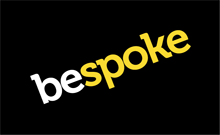Home > Blog
8 SEO tips for beginners
SEO FOR BEGINNERS:
8 quick tips to improve the ranking of your page
By Andrea Golding Stulajterova, Marketing consultant @ Bebuzz | Hive of Ideas
May 29th, 2014
Find out how can you make Google and other search engines love you! Implement these tips and see your page ranking go up over time! Good luck.
Tip #1: Write good content and update it regularly.
Update your news, blogs, press releases, case studies, client quotes, guides sections.... The more new relevant content you put on your site, the higher it will rank as Google indexes each new content.
Tip #2: A Word About Keywords
Keywords are the words and phrases people use when they search online. Choose the right keywords and where possible, select unique key phrases rather than commonly used words to describe your services/ products. Don’t forget to mention your location! People are more likely to search for services in a specific location such as ‘flower delivery Basingstoke’ then just flower delivery. Use italics or bold font and bullet points for your keywords, so that people can scan your copy easier.
Where should you incorporate your keywords?
- Page title - this is the text, which describes the content of your page and is shown above the search window and in search results. Keep it short - max. 70 characters!
- URL - is the web address of your site or page. Use keywords or phrases in the URL of your web, either the folder/ directory structure or the HTML page or file name itself i.e. www.bebuzz.co.uk/marketing-for-startups
- Page meta data - or the page description. Remember to fill your page metadata in. Maximum length is 150 characters!
- Header text (or H1 text) - this the title of an article at the top of your page, usually in large or bold text. Google and search engines use H1 text to determine what your page is about, so make sure it includes your keywords.
- ALT image text - Google can’t ‘read’ images, unless you tag them with keywords. This is done via image’s ALT text. Make sure that you title your images incorporating keywords.
- Video tags - Google loves video! Don’t forget to tag them with the proper keywords to rank higher.
Tracking your major campaign and keywords in Google will give you clear information about your efforts. To keep track of all your keyword ranking, try using whatsmyserp.com or similar service to check your keyword ranking.
Tip #3: Call to Action
Make sure that every page of your web has at least one call for action, ideally above the page’s fold. The actions can include ‘Find out more’, ‘Book now’, ‘Download for free’... As these are usually buttons - i.e. an image - make sure you name the file use ALT text for the primary keywords you are targeting on the page. You can test different calls to action/ colours of buttons to find out which convert the most visitors.
Tip#4: Content is king!
Make sure that the content of your web is relevant to your target audience - and unique! Your title and your first paragraph is especially important. As per guidelines provided by Google, the length of your text should be at least 300 words. Use sub-headings, bullet points and highlight your key messages to break up the text and make it easier for people to read. Don’t forget to use your keywords and phrases. But, enticing as it might seem, do not use them more than 2-3 times per 100 words, otherwise Google may penalise you.
Tip #5: Add your business to Google Places
Find out how to do it here, https://support.google.com/business/answer/2911778?hl=en#2911778.
Tip #6: Blog on similar sites
Find blogs in your field, especially those with a .co.uk extension. Start commenting on their blogs and then ask if you could write a guest post for them. If they accept, write fresh content for their blog (don’t just copy and paste something from your blog). Remember to include couple of links back to your site, using your keywords.
Tip #7: Get links from other relevant .co.uk/ your country sites
Number and quality of links from other sites to your website is important. If you’re targeting a local audience in the UK, you should aim to increase inbound links from reputable sites with a .co.uk extension. How can you get them? Guest post on sites from same niche, comment on the posts related to your site content, post notices on forums with links to your site.
Tip #8: Use Social Media
Google is now giving more importance to social media. Promote your content (links to your web) on various social networks and media. Target Twitter, Facebook, Google+, LinkedIn, YouTube and test Stumble Upon and Reddit. Make sure you put your domain name in your social media profiles.
If you have any additional tips, we'd love to hear them. Please leave us a message below.
comments powered by Disqus

